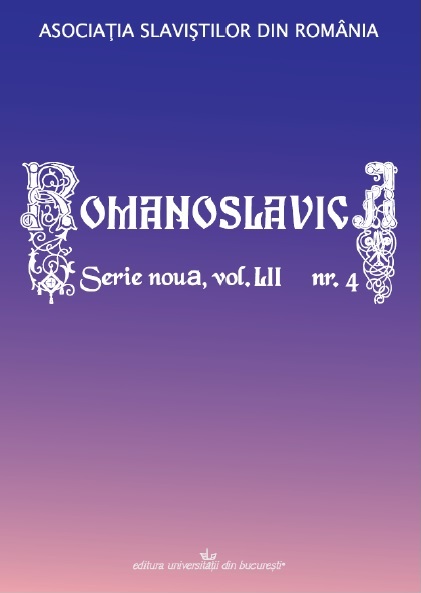Mitul geniului creator la Eminescu și la neoromanticii ruși
The myth of the creative genius in the work of Eminescu and the Russian neo-romantics
Author(s): Virgil ȘoptereanuSubject(s): Language and Literature Studies
Published by: Editura Universităţii din Bucureşti
Keywords: genius; demiurgical; romantic; neo-romantic; ambivalent
Summary/Abstract: The author follows the trajectory of the creative genius in European literature. He starts by focusing on Romanticism, by exemplifying with the work of Eminescu, and then on the Russian Neo-Romanticism, underlining the name of D. Merejkovski, one of the main representatives of the Russian Neo-Romanticism-Symbolism, in whose work myth acquires a mysterious demiurgic force, like a “disclosure of divinity”, endowed with a spiritual dimension impossible to attain. On the other hand, one may notice that the aesthetic-philosophical discourse of Eminescu, the last European romantic and that of the Russian Neo-Romantic D. Merejkovski, regarding the concept of creative genius, was influenced by Goethe’s perception of the artist, as well as by the doctrines promoted by the great German philosophers A. Schopenhauer and Fr. Nietzsche. At the same time, the mutations that occurred in the European aesthetic sensibility and consciousness as a result of a displacement of the center of gravity in art from a sense of harmony, serenity and balance to some opposing trends such as discord and chaos, irrational and unconscious, also influenced the myth on which the present paper is focused. The symbiosis between aesthetics and ethics, between earthly and divine in the Romantic period was replaced by the ambivalence of the notion of genius, which was placed on an aestheticized position and characterized by a sense of carelessness, capable to lead to some “terrible thoughts” on the “other self”, which is the antichristical “half” of the genius. The author goes further and shows that in the second half of the 20th century the myth in question received a stoke from the new trend that emerged in European literature under the name of Postmodernism. It did not resemble the scientific evolutionism in the 19th century which focused on the “radical humanization” of the genius, displaying it as a “homo maxime homo”. Thus, the myth of the creative genius was identified with the “ideological fairy tales” (J.-F. Lyotard) that were clearly rejected by the new literary trend.
Journal: Romanoslavica
- Issue Year: LII/2016
- Issue No: 4
- Page Range: 79-88
- Page Count: 10
- Language: Romanian

